QuestionJessie is a 9 year old cocker spaniel that we recently adopted from the Animal Rescue League. He doesn't give us any indication when he wants to go out, and even though we do our best, with our busy schedules to let him out, there that been many piles left on the floor in the living and diningrooms. Other than putting him out every 10 minutes or typing him out all the time, is there something we could do to keep accidents to a minimum. He seems healthly and his stools look fine.
Thank you for any help you can be.
Karen
AnswerAre you saying he does OK on urination, but not bowel movements? We had a dog that around 11 or 12 lost contact with his bowels. He would be walking along normally in the front and his back humped up having a bowel movement. You might talk to your vet about him. No amount of training will fix a physical problem.
Since it may be behavioral, I will post what I have prepared for young puppies. It has much of what you need. As he settles into your home, you may be able to pick up a pattern and know when he needs to go out. It also contains material on cleaning up. I hope my answer helps you solve the problem. Many people would have passed up a 9 year old, but if you can solve this problem, he could have many good years with you. I am very concerned about all the nice dogs killed for lack of homes. Thank you for giving him one.
Choose a command and spot you want it to use. The less accessible to strays,
the less chance of serious disease. If it is a female, choosing a
non grassy spot will avoid brown spots later. When you bring it home, take it
to the spot and give it the command in a firm, but friendly voice. Keep
repeating the command and let the puppy sniff around. If it does anything,
praise it. Really let it know what a good dog it is and how much you love it,
and maybe a treat. Note, being out there not only means you can praise it,
but it also keeps it from being snatched by a hawk. If it doesn't go, take it
inside and give it a drink and any meals scheduled. A young puppy will need to
go out immediately afterward. Go to the spot and follow the above routine.
Praising it if it goes is extremely important. If it doesn't go, take it back
inside and put it in its crate and try again soon. Do not let it loose in the
house until it does go.
At first it is your responsibility to know and take the puppy out when it
needs to go. It needs to go out the first thing in the morning, after eating,
drinking, and sleeping. If it quits playing, and starts running around
sniffing, it is looking for a place to go. Take it out quickly. You will just
have to be what I call puppy broke until it is a little older.
By the time most dogs are about 3 months old, they have figured out that if
they go to the door and stand, you will let them out. The praise slowly shifts
to going to the door. Some people hang a bell there for the dog to paw. If
your dog doesn't figure this out, try praising it and putting it out if it
even gets near the door. A stern "Bad dog!" is all the punishment that is
effective, and only when you catch it in the act and are sure you didn't miss
it going to the door. Clean up accidents promptly. I mostly keep the little
puppies out of the carpeted rooms. Still I need the can of carpet foam
sometimes. First blot up all the urine you can with a dry towel. Keep moving
it and stepping on it until a fresh area stays dry. A couple big putty knives
work well on bowel movements. Just slide one under it while holding it with
the other. This gets it up with a minimum of pushing it down into the carpet.
This works with even relatively soft ones, vomit, dirt from over turned house
plants, or anything else from solids to thick liquids. Finish up with a good
shot of carpet foam. Note, do not let the puppy lick up the carpet foam.
Once the dog is reliably housebroken, your carpet may need a good steam cleaning.
Many people strongly strongly push cleaning up all evidence of past accidents. I am slower to suggest that. Dogs will return to the same spot if they can find it. When you see one sniffing the spot, that is your clue to run it out.

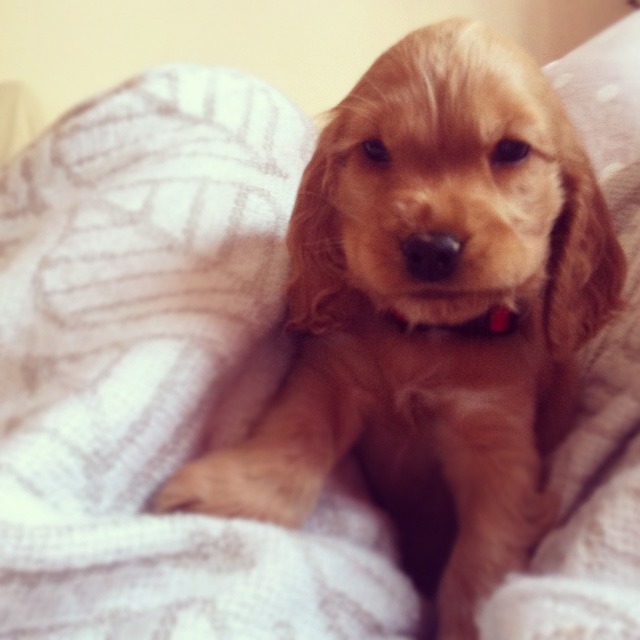 13 week cocker spaniel puppy turning vicious
Question
My Puppy
Hi
I have a male Golden Cocke
13 week cocker spaniel puppy turning vicious
Question
My Puppy
Hi
I have a male Golden Cocke
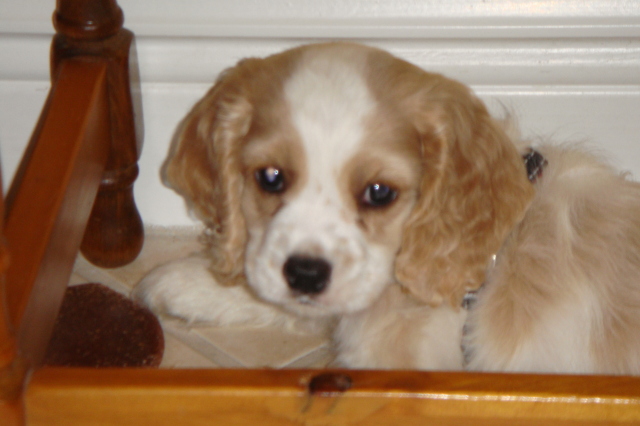 Differences between breeds
QuestionQUESTION: My puppy is 12 wks.old and weights ar
Differences between breeds
QuestionQUESTION: My puppy is 12 wks.old and weights ar
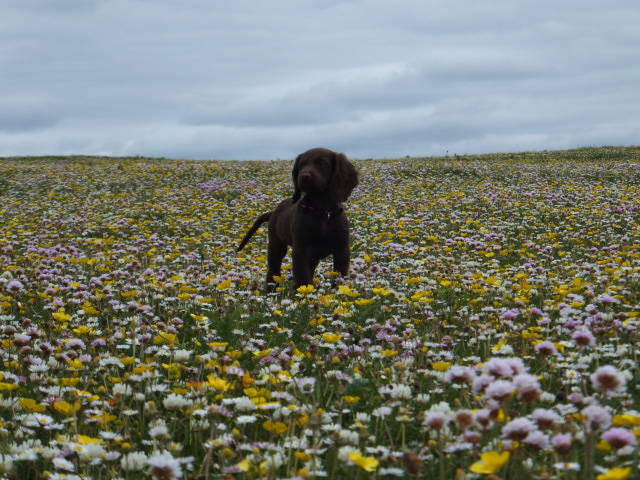 Travelling
QuestionQUESTION: Dear Dolores,
My 7 months old female
Travelling
QuestionQUESTION: Dear Dolores,
My 7 months old female
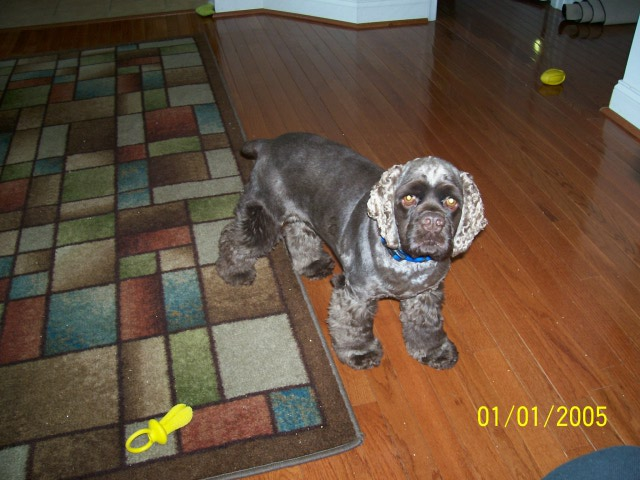 cocker allergies
Question
Cinnamon Cinnamon
My 3 year old c
cocker allergies
Question
Cinnamon Cinnamon
My 3 year old c
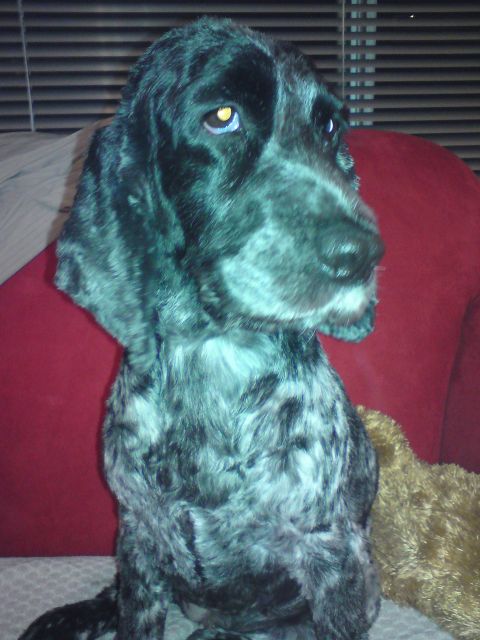 Nervous/depressed cocker spaniel
QuestionSophie
QUESTION: Hi! Sorry if this is a
Nervous/depressed cocker spaniel
QuestionSophie
QUESTION: Hi! Sorry if this is a